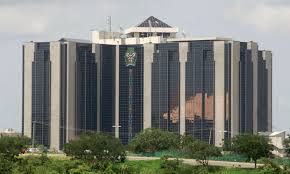
Capital Importation Drops By 48% – CBN
Capital importation into the country for the production and manufacturing sector crashed by 48.42 per cent in 2022.
Economic Confidential observed that foreign investments in manufacturing businesses in the country fell from $100.97m in January 2022 to $52.08m in November 2022.
This was according to the Capital Importation by Nature of Business data from the Central Bank of Nigeria.
The decline in foreign investment occurred as manufacturers struggle with a rising debt profile and interest rate hikes, among other issues.
It was reported that operators in the nation’s manufacturing sector saw their combined debts to Nigerian banks rise from N4.09tn in December 2021 to N5.33tn in November 2022, according to the CBN’s Sectoral Analysis of Deposit Money Banks’ Credit.
The CBN hiked the interest rate five times within a period of a year as manufacturers’ debt rose by N1.24tn in 2022.
In its November 2022 CBN Update, which was released last month, the apex bank acknowledged that there would likely be an increase in business costs, which could further drive up inflation.
The report read in part, “CBN understands the market is currently very tight due to the tightening (i.e., the consecutive four increase of MPR). The bank knows that the cost of new businesses and production will increase, and by extension could be said that this will also fuel further inflation.”
The bank further acknowledged the effect of the interest rate hike on manufacturers in the country.
It said, “We are aware that manufacturers are feeling the tightening, however, we are also looking at employment and disposable income. Where there is an increase in salaries or earnings, the real value of that income is eroded as inflation is going up, which inevitably will also lead to layoffs and poverty.
“The bank is looking at different factors simultaneously, which means there will be trade-offs, one of which is the decision to increase the rates. Also, the bank has created stabilisers to cushion the effect of this trade off. One of the cushions is the retaining of its single credit lines created as interventions in agriculture and manufacturing, to ensure that there are some affordable funds going into those sectors.”
Economic Confidential reported recently that manufacturing growth in 2022 slowed by 24.7 per cent to 6.93 per cent, compared to 31.66 per cent in 2021, according to the National Bureau of Statistics.
The nominal Gross Domestic Product of the manufacturing sector in the last quarter fell by 16.6 per cent from 25.52 recorded in 2021 to 8.86 in 2022, on the back of the challenging business environment in the country.
The Chief Executive Officer of the Centre for the Promotion of Private Enterprise, Dr Muda Yusuf, told our correspondent that the operating environment had remained very bad and challenging for many of the productive sectors of the economy.
“The combined forces of high energy costs and inflationary pressure had interplayed to weaken production for some of the major players in the economy,” he said.
